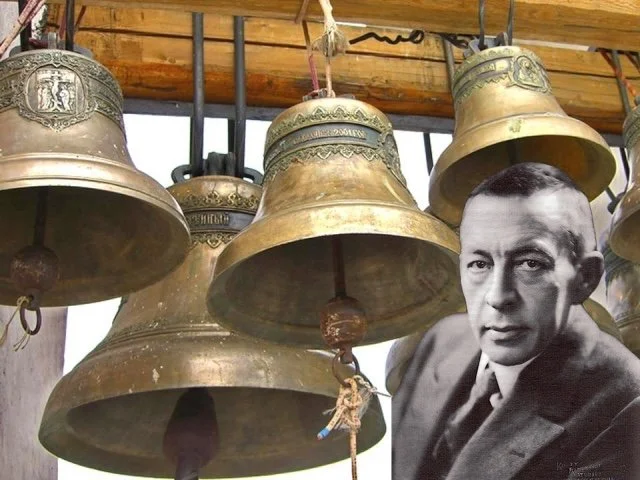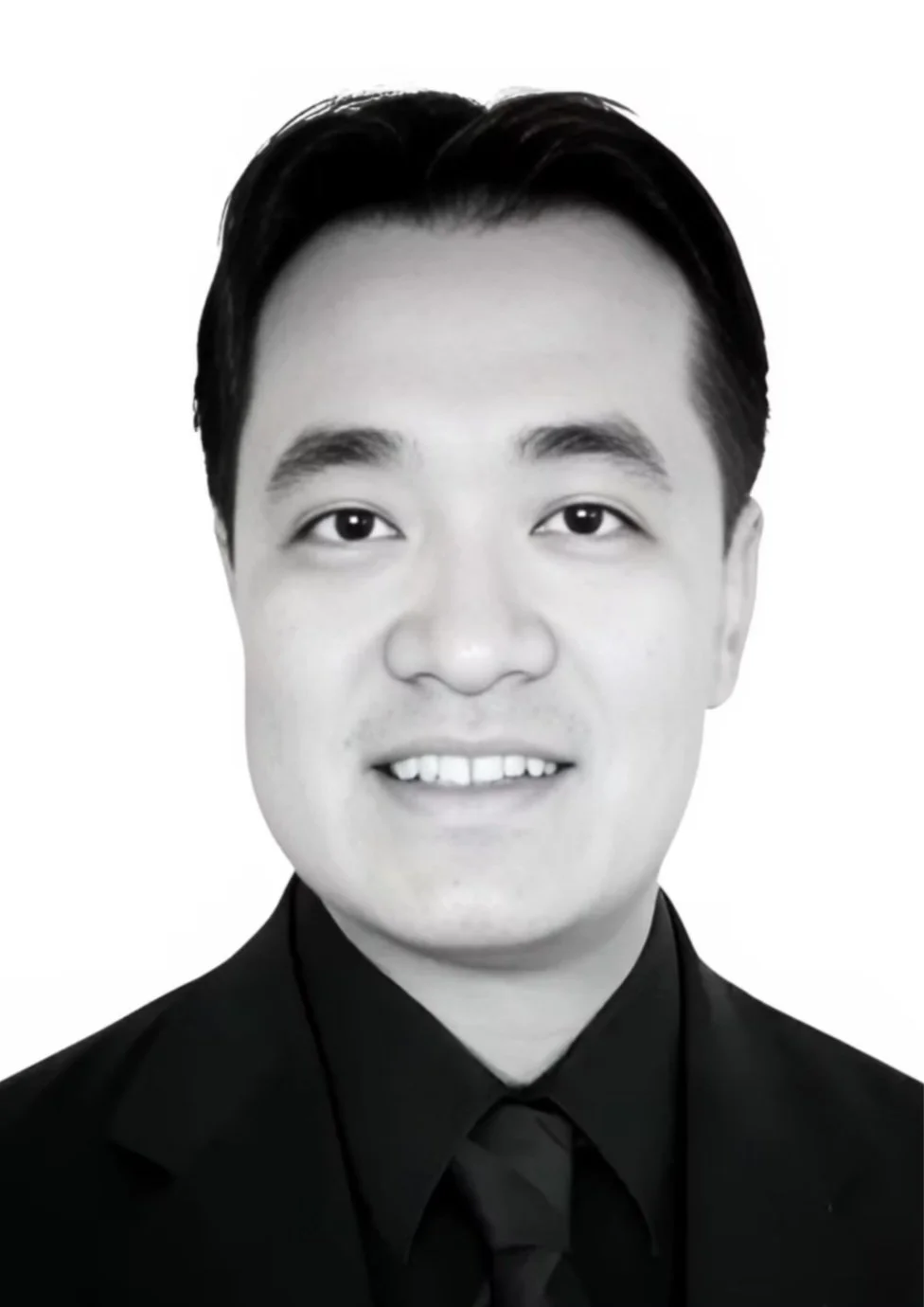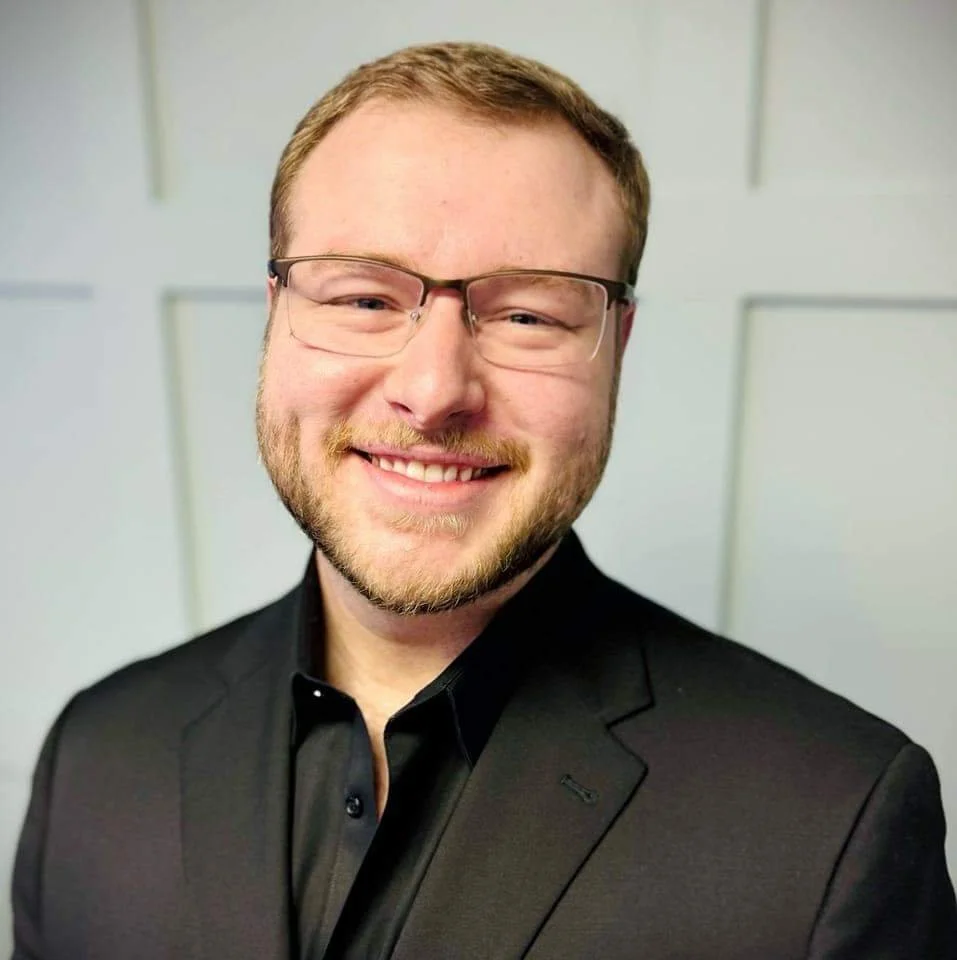THE JOYOUS CACOPHONY OF BELLS
Te Deum Performs Rachmaninoff’s All-Night Vigil
By Patrick Neas, KC Arts Beat
“The sound of church bells dominated all the cities of the Russia I used to know—Novgorod, Kiev, Moscow,” Rachmaninoff once wrote. “They accompanied every Russian from childhood to grave, and no composer could escape their influence … All my life I have taken pleasure in the differing moods and music of gladly chiming and mournfully tolling bells. This love for bells is inherent in every Russian.”
Rachmaninoff was not only steeped in the sound of bells but also the sacred chant of the Russian Orthodox Church. Those influences came together in one of Rachmaninoff’s most profound works, the All-Night Vigil. This masterpiece of sacred music will be performed in its entirety and in English by Te Deum conducted by Matthew Christopher Shepard at 7:30 p.m. Sept. 27 at Village Presbyterian Church and 7 pm. Sept. 28 at St. Paul’s Episcopal Church.
“It's a very distinct and special kind of cacophonous joy of Russian bells that you'll get that throughout this work,” Shepard said. “Rachmaninoff is frequently giving articulations and rhythms to help create bell sounds coming from the choir. Nobody did bell music like Rachmaninoff.”
One of the greatest pianists of his age, Rachmaninoff is best known for his piano concertos and solo piano works, but in 1915 he composed his All-Night Vigil in two weeks of feverish inspiration. Even though he was not a conventual believer, Rachmaninoff was profoundly influenced by the Orthodox liturgy and the sacred music of Tchaikovsky. The Vigil has all the lush romanticism one knows and loves in Rachmaninoff’s symphonic works.
It was first performed by Moscow’s Synodal Choir as a benefit concert for the Russian war effort during World War I, and became one of the favorite works of the composer himself. In fact, Rachmaninoff requested that the fifth movement (Nunc Dimittis) be sung at his funeral.
Matthew Christopher Shepard
Sergei Rachmaninoff
“The All-Night Vigil is actually a combination of three different services that combine to make an all night vigil,” Shepard said. “You have the Vespers service, which is the the first six movements of the piece. Then you move into the sort of the midnight matins service, which is the next eight movements, and then the very final movement is the first part of the first hour of the morning. So that's what takes you through the night, the all-night vigil.”
Following the Russian Revolution in 1917, the Soviet regime imposed strict restrictions on religious expression. Sacred music—including Rachmaninoff’s Vigil—was effectively banned from public performance. The Moscow Synodal Choir, which had premiered the work, was disbanded in 1918, replaced by a secular “People’s Choir Academy.” Russian church bells, which the Orthodox consider “singing icons” were also silenced.
In 1965, however, the Soviet choral director Alexander Sveshnikov made the first recording of the Vespers portion of the All-Night Vigil. The Soviets only allowed it to be released internationally not domestically, but it was a revelation to music lovers around the word who discovered this mesmerizing work for the first time. Over the following decades, many other recordings were made, including an acclaimed performance by the Phoenix Chorale and the Kansas City Chorale conducted by Charles Bruffy.
“My first exposure to this glorious music would have been Robert Shaw's recording from, I think, 1990,” said Shepard, who recently succeeded Anthony Maglione as director of music at St. Mary’s Episcopal Church in Downtown Kansas City, Missouri. “Since then, I've had the opportunity to perform a couple of the individual movements. I've sung the Vespers portion. I've sung half of it before. It’s a piece that’s rarely performed. It's a massive undertaking and a challenge to put on. The choir divides into upwards of 12 parts, and it's just a really long and challenging thing for a choir.”
Another challenge is finding the deep basses, who give the work its distinctive resonance. Besides adding an extra 25 singers to this usual 24-member choir, Shepard also had to
“There aren’t many normal basses that can sing these unusually, ridiculously low notes,” Shepard said. “So I've added two specialists for this concert called Basso Profundos or Basso Profundi, two basses with an extra octave below what most basses would normally sing. We're really fortunate in Kansas City that two of these international specialists happen to be right here in Kansas City. One of them is named Thou Yang, and the other is Kelly Cossey.”
Thou Yang
Kelly Cossey
Besides bells, the symbol of light is fundamental to Rachmaninoff’s All-Night Vigil
The Vigil spans three canonical hours: Vespers (evening), Matins (pre-dawn), and First Hour (sunrise). This arc mirrors the passage from darkness to light, symbolizing spiritual awakening, resurrection, and divine illumination. The Orthodox liturgy is rich with references to Christ as the “Light of the World,” and this theme is embedded in the texts Rachmaninoff sets.
“Out of the Vigil’s 15 movements, the first six movements are from the Vesper service, and they mostly focus on the birth of Jesus,” Shepard said. That's where we get the famous Bogorodice Djevo, the sort of the Hail Mary and, and, and the Nunc Dimittis, or the Song of Simeon. ‘Now that my eyes have seen this child I can depart in peace.’ That all happens in the Vesper service. Then the remaining 40 to 45 minutes of music is devoted to great praise and rejoicing in the resurrection of Jesus.”
Rachmaninoff’s music always seems to have a nostalgic, autumnal quality, and in late September, as we prepare to enter the darkness of winter, it seems the perfect time to contemplate light through the great Russian composer’s music. Te Deum’s motto is Humanity transformed by sacred music. The All-Night Vigil promises to be a transformative experience.
“There's a depth of solemnity, a depth of seriousness that absolutely resonates with this time of year,” Shepard said. And the All-Night Vigil feels like a musical, comfortable blanket engulfing you and just giving you warmth and protection. It's very protective music.”
Te Deum Performs Rachmaninoff’s All-Night Vigil
7:30 p.m. Sept. 27 at Village Presbyterian Church, 6641 Mission Road
7 p.m. Sept. 28 at St. Paul’s Episcopal Church, 11 E. 40th St.
$25. For tickets and more information, te-deum.org





